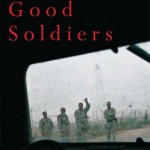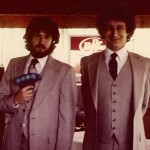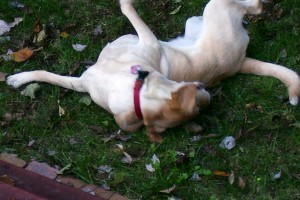The six most insincere words in the English language: Your call is important to us.
For more “insights” go to twitter.com @tomshroder
Author & Editor
The six most insincere words in the English language: Your call is important to us.
For more “insights” go to twitter.com @tomshroder
David Finkel’s book, The Good Soldiers, is getting amazing reviews. How about this, from the estimable Daniel Okrent in Fortune Magazine:

 Let me be direct. “The Good Soldiers” by David Finkel (Sarah Crichton Books/FSG) is the most honest, most painful, and most brilliantly rendered account of modern war I’ve ever read. I got no exercise at all the day I gulped down its 284 riveting pages.
Let me be direct. “The Good Soldiers” by David Finkel (Sarah Crichton Books/FSG) is the most honest, most painful, and most brilliantly rendered account of modern war I’ve ever read. I got no exercise at all the day I gulped down its 284 riveting pages.
I told David that was the kind of review writers construct in their imaginations before they drift off at night, on a par with the all time author’s wet dream: “A heartbreaking work of staggering genius.”
But I’m not surprised. David has always been a brilliant writer, of the type who got deep down inside a story, digested it thoroughly, then spun it out with uncannily sure-footed grace. So spending two years in the most intense circumstance possible, in combat in Iraq, it stood to reason that what he came up with would be legendary.
That said, the greats always have to put their pants on one leg at a time. When Finkel finally sat down to write this, he had to choose a first word, a first sentence, and a first paragraph, just like everyone else. That first paragraph is reproduced below. Read it, then on the other side, let’s deconstruct it.
The first paragraph of The Good Soldiers:
His soldiers weren’t yet calling him the Lost Kauz behind his back, not when all of this began. The soldiers of his who would be injured were still perfectly healthy, and the soldiers of his who would die were still perfectly alive. A soldier who was a favorite of his, and who was often described as a younger version of him, hadn’t yet written of the war in a letter to a friend, “I’ve had enough of this bullshit.” Another soldier, one of his best, hadn’t yet written in the journal he kept hidden, “I’ve lost all hope. I feel the end is near for me, very, very near.” Another hadn’t yet gotten angry enough to shoot a thirsty dog that was lapping up a puddle of human blood. Another, who at the end of all this would become the battalion’s most decorated soldier, hadn’t yet started dreaming about the people he had killed and wondering if God was going to ask him about the two who had merely been climbing a ladder. Another hadn’t yet started seeing himself shooting a man in the head, and then seeing the little girl who had just watched him do it, every time he shut his eyes. For that matter, his own dreams hadn’t started yet, either, at least the ones that he would remember—the one in which his wife and friends were in a cemetery, surrounding a hole into which he was suddenly falling; or the one in which every thing around him was exploding and he was trying to fight back with no weapon and no ammunition other than a bucket of old bullets. Those dreams would be along soon enough,but in early April 2007, Ralph Kauzlarich, a U.S. Army lieutenant colonel who had led a battalion of some eight hundred soldiers into Baghdad as part of George W. Bush’s surge, was still fi nding a reason every day to say, “It’s all good.”
Pretty amazing, right? So let’s imagine how he did it. First of all, Finkel has to deal with the fact that he has trunks, truck loads, ocean tankers full of material, so much of it unbelievably intense. At first it must have seemed to him like trying to pee the Amazon. Just too much stuff and too small an opening. So what did he do? He pulled back. He thought about his best character, Lt. Col. Ralph Kauzlarich, who was a wonderful paradox in himself, perfectly emblematic of this war. He was the most positive individual imaginable cast into the most negative possible place. A man who could venture into Hell, which is where he was, and still say at the end of the day, “It’s all good.”
So that would be the arc of his first paragraph. But Finkel is too much of a craftsman to leave it there. In introducing the living paradox that is Ralph Kauzalarich, the Lost Kauz, Finkel would create an opportunity to blurb all that material backed up in the tanker, all the stuff that would take 284 pages to unpack, but could be suggested in a few well chosen glimpses. A man shooting a dog lapping a puddle of human blood, a hero terrorized by the impossible choices of war, a warrior knowing his doom lies like a yawning pit before him. From such a slender thread of sentences, Finkel produces a firehose of emotion, and promises that once you start his book, you’ll become as changed as the good soldiers it chronicles.
Insight: We tend to resent anything that thrives without human intervention — rats, cockroaches, ragweed, Oprah.
For more “insights” go to twitter.com @tomshroder

David Finkel, right, with friend David Klein. So 1970s.
I’ve known David Finkel at every stage of his career — from when we were on the University of Florida student newspaper together, to when we were first learning to write feature stories together at the Tallahassee Democrat, and later at the Washington Post, where Finkel preceded me at the magazine and went on to win a Pulitzer Prize for explanatory journalism. On a personal, one to one basis, he’s always been one of the funniest people I’ve known, funnier face-to-face than Dave Barry or Gene Weingarten. He’s sarcastic, self-deprecatory, even kind of goofy at times. At the earliest stages of his career, I thought he’d more likely be a humor writer than a serious journalist.
Wrong again.
Finkel had astonishing depth and an immense reservoir of talent I barely guessed at. He’s become one of the great non-fiction stylists of our generation — and his style is based on prodigious powers of observation and an almost godlike ability to see, and show us, how the smallest detail can contain the universe.
It’s one of the mysteries of journalism that it’s taken Finkel until now to publish his first book — a fact with which Finkel has made himself the butt of thousands of his own jokes over the years. But now the book is out, and you better stand back.
It’s called The Good Soldiers, and it’s a worm’s eye view of the proverbial “boots on the ground” of American soldiers deployed to Iraq — a worm with the eyes of a poet, it’s that up-close and that profound.
Next Post: Deconstructing Finkel’s opening paragraph.
In the world of Entertainment, even the ugly people are beautiful. A script demands an unattractive character? No problemo. Just stick a bad haircut or glasses on a supermodel. Producers seem to feel that, as a plot point, homeliness can be endearing. But in the flesh, it is unforgivable.
Pay attention to the extras wandering around in the school corridors, hospital waiting rooms, even the truck stops as depicted in movies and TV shows. All gorgeous. As are the hairdressers, cable guys, dental assistants and high school guidance counselors who wander briefly into the shot, if only to speak a throwaway line like, “How often do you floss?”
Of course the feminist movement of the past generation has had some impact on our collective babe addiction. Used to be that in popular novels female protagonists were distinguished by a single attribute: their beauty. Today, I’m glad to say, the heroines are multifaceted. Every last one is now described as, “brilliant and beautiful.”
So maybe I shouldn’t be surprised by the revelations about the edition of Self magazine now at grocery checkout counters. The issue, devoted to “Total Body Confidence,” features a gleaming image of Kelly Clarkson

The cover text conveys the impression that Self is Selflessly speaking out against the beauty Nazis in our culture who would devalue all humans marred by cellulite or deficient cheek bones. Inside, Clarkson talks about her heavily chronicled fluctuations in weight, and insists they are nobody’s business. “My happy weight changes,” the magazine quotes her as saying. “Sometimes I eat more; sometimes I play more. I’ll be different sizes all the time. When people talk about my weight, I’m like, ‘You seem to have a problem with it; I don’t. I’m fine!’
That point is emphasized on the blurb beside her photo: “Stay True to You and Everyone Else Will Love You, Too!”
The editors must have been on a tight deadline, because they forgot to add, “Unless You Are Fat!”
Kelly Clarkson may be fine with her weight, but despite all the P.C. packaging, Self magazine definitely has a problem with it. Unretouched photos taken at the time of the cover shoot showed her packing maybe 30 extra pounds. You’d never guess it looking at the cover photo: the flab was so thoroughly airbrushed away they might as well have just pasted her head on some other (very buff) woman’s body.
The irony was delicious enough on its own, but ironists everywhere got a special treat when Self magazine editor Lucy Danziger showed up on the Today Show this morning to defend/promote the Clarkson cover.
No matter what question was thrown her way, Danziger just kept spouting versions of the official statement: “Kelly Clarkson is a strong and healthy woman and is working out regularly, and all our magazine did is to display that confidence, self esteem and beauty. We love this cover and we love Kelly Clarkson.”
She alternated that non-denial denial with affirmations of the issue’s alleged feel-good theme, that beauty came from the inside and that women needed to feel good about their bodies and refuse to be repressed by unrealistic visions of the female form.
To Meredith’s credit, she kept pressing: Then why did they feel compelled to airbrush Clarkson into a Vargas Girl?
“We just wanted her to look her best!” Danziger chirped.
Now, that’s beautiful. In an ugly sort of way.
Usually, the delightfully eccentric Kyra Sedgwick is the only thing that captures my attention in the TNT cop drama The Closer. But the other night, something else jumped out and grabbed me by the lapels. Kyra wanted to go after a suspect in something other than a department-issued sedan, so she turned to one of her detectives and asked, “What kind of car do you drive?”
“A Prius,” the staffer responded with dawning horror. “But it is brand new, and I just washed it!”
Nobody denies Kyra anything, and this would be no exception. She commandeered the car. As they pulled out of the station the camera lovingly lingered on the Prius’s distinctively aerodynamic exterior before switching to an interior view. I began to get an uneasy feeling as it panned slowly down the car’s control panel, lingering unsubtly on the “Energy Flow Diagram” in the touch screen. My uneasiness turned to queasiness when they approached the perp, conveniently caught in the act of burying a body, and Kyra urges stealth. The detective responded, “This car has an all battery mode, so we can drive in without making a sound!”
Now I felt dirty. All I wanted was to slurp up a little free entertainment, when without warning, the hour drama I’m watching morphs into an advertisement for Toyota.
“So what?” my wife asked me. “It kind of fit the show, and it’s not like you don’t already know that this is commercial television.”
 She had a point. And ever since E.T. the extraterrestrial followed a trail of Reese’s Pieces more than a quarter century go, thereby driving a 65 percent surge in sales of the chocolate-peanut butter treat, paid product placement has become a given in almost every movie and television show.
She had a point. And ever since E.T. the extraterrestrial followed a trail of Reese’s Pieces more than a quarter century go, thereby driving a 65 percent surge in sales of the chocolate-peanut butter treat, paid product placement has become a given in almost every movie and television show.
But somehow this hit me as different. Previously, the advertising pitches began and ended with the “placement.” The product just showed up on screen, nothing more. This was something else. The Prius wasn’t just sitting at the curb, it had been written into a plot in a way designed to emphasize the car’s selling points. These characters we have bonded with were pitching us, playing us for suckers. It wasn’t about the art of making a good TV drama, it was about sales.
And that’s when I realized why it had hit me so wrong. Two times over the years, my wife and I had begun to make friends with another couple, only to discover that the new “friends” were really more interested in pitching us something than getting to know us. The first time, the husband cornered me and tried to sell me satellite TV. The other couple made my wife the target: they wanted to persuade her to convert. On both occasions, the evenings instantly turned to ash and we felt violated, our good will abused.
Now we discover that Facebook, that haven for online “friends,” is actually signing folks up to market products to their buddy networks. “People naturally seek out products and make buying decisions based on recommendations from their friends,” the promotional material for the “Market Lodge” program astutely notes.
Yeah, that’s because they trust their friends, and believe that friends have only their well-being in mind, as opposed to, say, a 10 percent commission on the sale.
Suckers.
Last night, I got delayed by some paperwork and was late for my dog’s daily walk. There’s nothing in writing – no contractual clauses or promissory notes or anything. But my dog knows, almost to a minute, when her walk is due. If I’m late, she’ll give me a grace period of about 15 minutes.
When my grace time was up last night, she positioned herself in front of where I was working, lowered her shoulders and stretched her head forward so she could look past the papers directly into my eyes. When I ignored her, her tail began to switch and her gaze went from pleading to accusatory. I knew what was coming next. Increasingly outraged, dog food-scented barks. One at a time, until I relented
“You’re lucky I don’t eat you,” I said, immediately regretting it. But I hadn’t come up with this gruesome thought on my own. I’d just read about a study published this week by geneticists at the Royal Institute of Technology in Stockholm, which had arrived at a startling and disturbing conclusion: wolves were originally tamed and domesticated into modern dogs in East Asia for … food.
And here I thought it was because people couldn’t get enough of being bugged to throw a stick – over and over again.
The Swedish researchers have also deduced, based on the fact that the diversity of dog DNA decreases the further you get from China, that wild wolves were turned into dogs just once. After the initial domestication, the descendants of those first dogs spread rapidly through the rest of the world.
In other words, domestication of canines was so useful that every group coming in contact with the custom wanted to import it. Only — and this is where things get strange — as dogs spread, the use that initially made them so important virtually disappeared.
Somehow the dog went from prime rib and rump roast to watchdog and beloved companion.

Food for thought?
I think I know why. Dogs, inherently social and clever creatures, learned that their human captors were wildly unpredictable. At times, they could be kind and even loving. At others, they would become, quite literally, butchers. Over untold generations, some dogs – those must likely to survive — developed a key skill by watching their masters, well, doggedly. They discovered that if they paid close attention to minute changes in a human’s face and eyes, a mood could be intuited. They could discern, for instance, the difference between a playful look and a hungry one.
Last year, British scientists published a study demonstrating that dogs are the only animals that do what humans do: study faces for clues to the emotions behind them. Somewhere along the line, dogs also learned how to communicate emotion through their eyes.
This is what my dog was trying on me, with the expertise that only 14,000 years of practice can produce.
Those deep, imploring eyes gave me an insight: No doubt if cows had learned to gaze pleadingly into human eyes, we’d eat far less beef.
And then I obediently went to get her leash.
Copyright © 2026 Tom Shroder
Terms of Service & Privacy Policy | Data Access Request